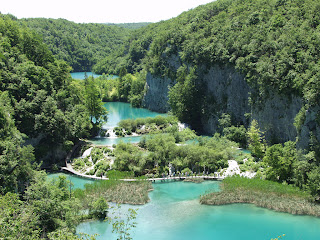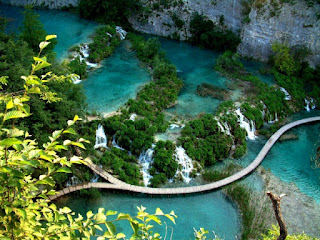The real name of this place is Lake Nyos but the locals now call it “Killer Lake” or “The Lake that Killed” - a well deserved name. Located in a crater on the flanks of an inactive volcano the extremely deep waters lie above a pool of magma that slowly leaks carbon dioxide. It’s part of the Oku volcanic configuration and is located in the north-west region of Cameroon. In 1986 a vast bubble of carbon dioxide mixed with sulfur and hydrogen spewed to the surface. In total, 1.6 million tonnes of this lethal gas spread over a huge area - reaching 23 kilometers away from the source. Hugging the ground this deadly and near undetectable concoction swept over villages and small towns. Approximately 1,700 people and 3,500 farm animals were killed within two hours. Survivors experienced long-term side effects including lesions, soft-tissue burns and respiratory illnesses.
Lake Nyos - otherwise known as "The Lake that Killed." The outgassing of carbon dioxide was so large that it lowered the level of the lake by over a metre and turned the water to the colour of blood. 1,700 people died within two hours. This image is accredited to the USGS - United States Geological Survey.





























































